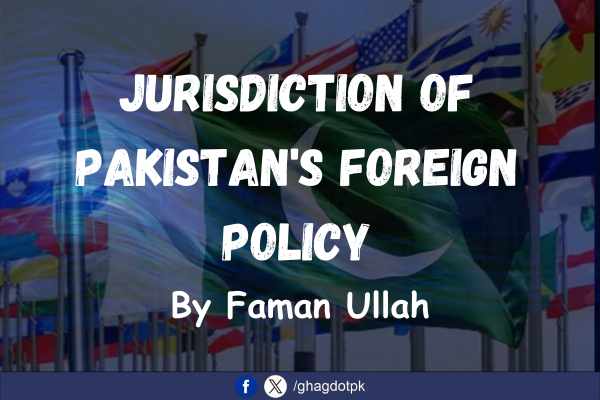By Farman Ullah
In the age of globalization, no country can afford to live in isolation. Establishing multi-dimensional relations with other countries is crucial for a nation’s survival and security. Foreign policy plays a vital role in achieving national interests and ensuring a country’s survival. It coordinates strategies to manage relations with other countries, nations, and non-state actors to achieve political, economic, and military goals.
Gandapur’s Recent Statement
Recently, Ali Amin Gandapur, CM of Khyber Pakhtunkhwa, announced that he would take a proactive approach to resolving the issue with Afghanistan. He declared that he would personally reach out to the Afghan authorities, dispatch a delegation, and engage in direct talks to resolve the matter. However, this statement is clearly against the principles of federalism in Pakistan.
Foreign Policy: A Federal Subject
Foreign policy is a federal subject, falling under the jurisdiction of the federal government. The Constitution of Pakistan assigns the responsibility of conducting foreign policy to the federal government, specifically the Ministry of Foreign Affairs. The federal government has the authority to establish and maintain diplomatic relations, negotiate and sign international treaties, represent Pakistan in international organizations, determine Pakistan’s position on international issues, and conduct foreign trade and commerce.
Provinces in Pakistan do not have the authority to conduct their foreign policy or enter into international agreements. However, they may have a limited role in promoting international cooperation and trade in specific areas, such as education, culture, and economic development, with the approval and coordination of the federal government. This ensures a unified stance on the international stage while allowing provinces to contribute to international efforts in specific areas.






